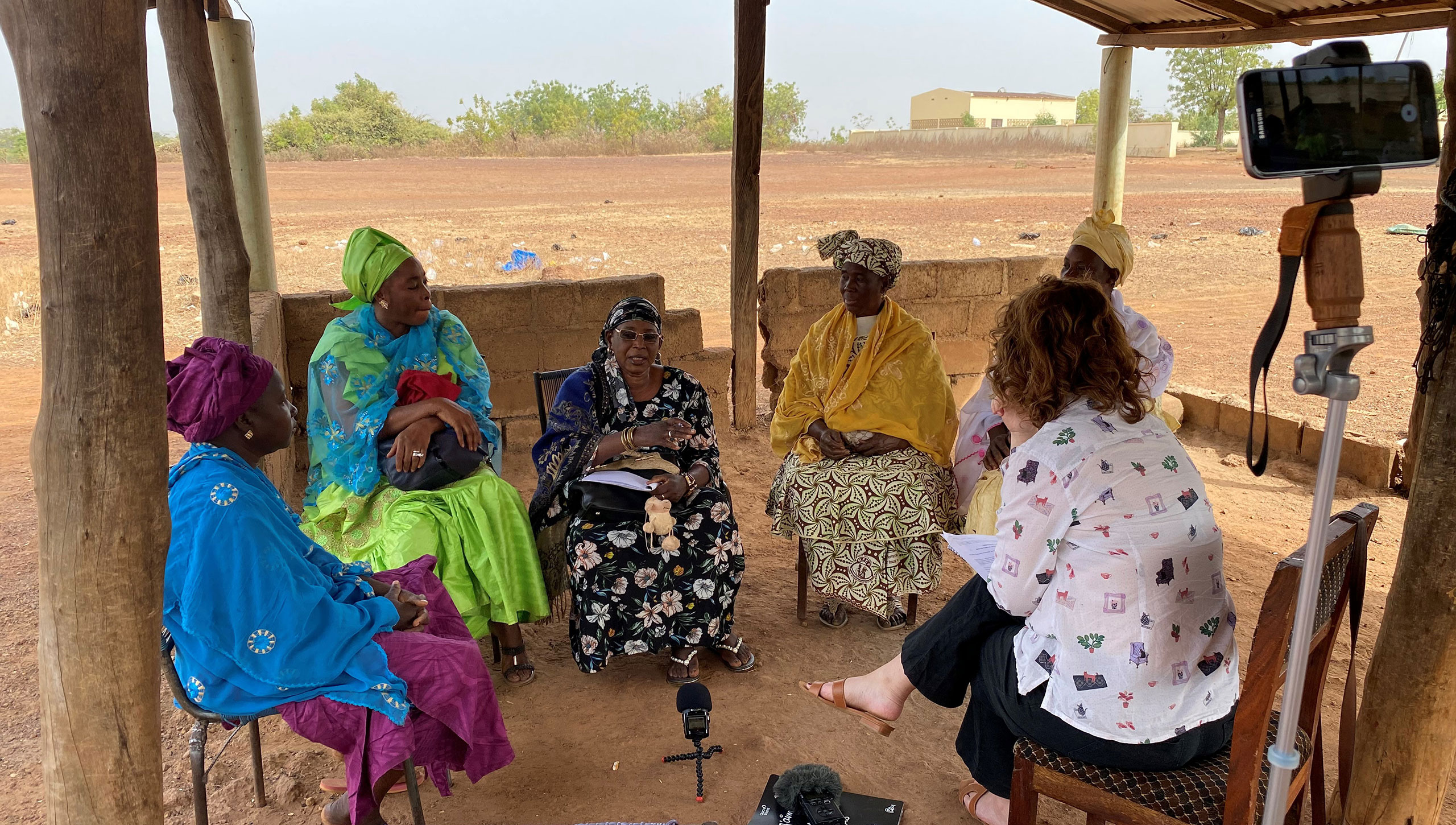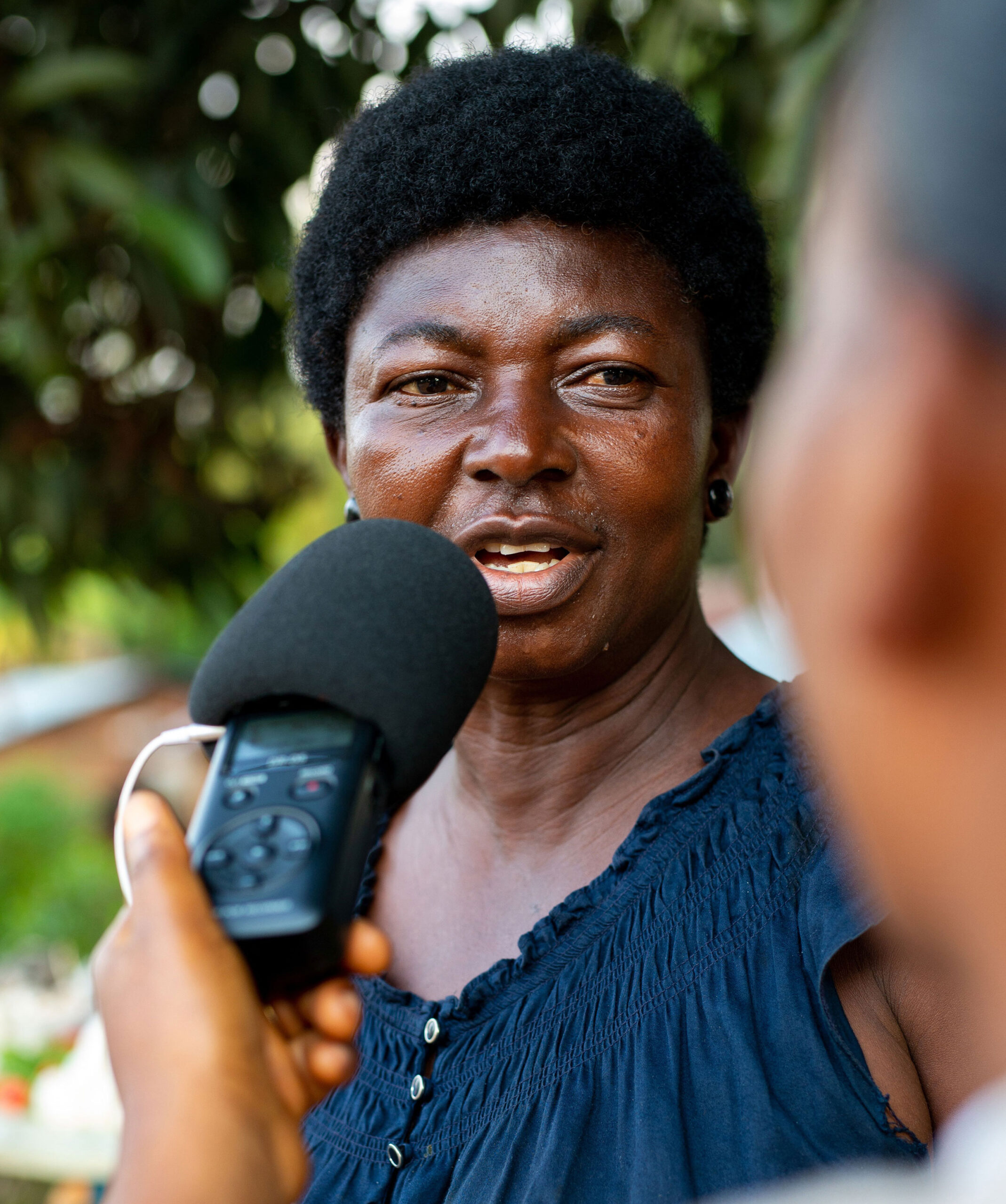THE ROLE OF MEDIA IN ADDRESSING VIOLENCE AND MISINFORMATION
In 2022, Fondation Hirondelle conducted nine studies in the countries of operation to better understand the impact of independent media in countering misinformation, violence and abuse of power.
Fondation Hirondelle conducted nine studies in countries where it works in collaboration with several universities, including the Centre national de la recherche scientifique et technologique (CNRST) and the Université Thomas Sankara in Burkina Faso, as well as with the universities of Sheffield (UK), Michigan and Harvard. These studies help to better understand and assess the role of independent and trustworthy media in fragile regions that are particularly affected by misinformation, violence, and abuse of power.
In the Central African Republic, Fondation Hirondelle benefited from the installation of new Radio Ndeke Luka (RNL) FM transmitters in remote areas of the country. Near the Cameroon border, more than 550 people were surveyed before and after the installation of the new FM transmitter. 84% said they fully trusted the information coming from RNL, a rate four times higher than for other local radio stations. The surveys also revealed a significant increase in respondents’ commitment to elections and opposition to undemocratic practices. Residents’ confidence in their ability to discern truth from falsehood increased, and the proportion saying they would try to verify information before sharing it rose from 33% to 59% (+26%).
Fondation Hirondelle also participated in the publication of a report on peacebuilding in the digital age for Switzerland’s mandate in the UN Security Council. The report highlights the challenges and opportunities of digitalization in fragile contexts. New digital tools today offer the means to analyse on a larger scale the intrinsic causes of conflicts and increase interactions between citizens and decision-makers. However, users must be made aware of the dangers of digital technologies, such as the polarization of the online public space, surveillance and the digital divide.
Finally, Fondation Hirondelle has launched a pilot project in Burkina Faso on the way media cover gender-based violence. In this country, which is experiencing one of the largest internal displacement crises in Africa, journalists have to interview particularly vulnerable people, sometimes victims of trauma and violence. Practitioners and researchers from Harvard Medical School & School of Public Health, the University of Sheffield, and Thomas Sankara University in Burkina Faso are analysing the editorial content of the Studio Yafa project and conducting focus groups with journalists and correspondents to better address gender-based violence and related trauma. This will result in recommendations and training for journalists.
Fondation Hirondelle has launched a pilot project in Burkina Faso on the way media cover gender-based violence.

STUDIES ONGOING IN 2022
• Radio Ndeke Luka impact study on the fight against misinformation and rebuilding the democratic and peace process in CAR, with Dr. Jeff Conroy-Krutz, Michigan State University
• Report on Peacebuilding in the Digital Age, by Lisa Schirch, University of Notre Dame (Indiana), with Principle for Peace and ICT for Peace Foundation, May 2022
• Study on media coverage of gender-based violence in Burkina Faso, in collaboration with Harvard Medical School & School of Public Health, University of Sheffield, CNRST & Thomas Sankara University and the NGO Pull for Progress in Burkina Faso
• Studio Sifaka impact study on youth engagement in the democratic process in Madagascar with Dr. Jeff Conroy-Krutz, Michigan State University
• Study in Mali, Niger and Burkina Faso, with Dr. Emma Heywood, University of Sheffield, on the promotion of women’s and youth rights
• Analysis of Studio Kalangou’s results in relation to gender issues in Niger, with the Institute of Applied Media Studies, Zurich
• Support to three PhD students in their research-related activities in the framework of the Media Development in the 21st Century (MEDAS 21) programme:
“Social construction of media sustainability”, Michel Leroy
“UN Media Efforts in Peace Operations”, Roja Zaitoonie
“Radio and Peacebuilding in CAR”, Fabiola Ortiz

REPRESENTATION TO THE EUROPEAN UNION
Since establishing its presence in Brussels in 2017, Fondation Hirondelle has continued to strengthen its collaboration with the European Union and its member states. In addition to being the world’s leading donors, member states are key policymakers in the crisis contexts where we work. This collaboration has increased over the past three years with the appointment of a representative to the EU. Our presence in Brussels allows us to bring realities and experiences from the field to inform policy and programme decisions made in Brussels.
In 2022, the focus was on disinformation, including an informal meeting for ambassadors of the EU Political and Security Committee (PSC) — the EU’s main foreign policy decision-making body — on disinformation in the Sahel as a threat to the region’s security and stability.
EXPLAINING THE ROLE OF THE MEDIA TO THE INTERNATIONAL COMMUNITY
Fondation Hirondelle’s teams actively participated in 32 events in 2022, including European Development Days in Brussels, Peace Week in Geneva, International Media Conference in Tallinn, Journalism Forum in Tunis, forums and webinars on responding to misinformation in Brussels, Nairobi and online, World Press Freedom Day in Arusha, and World Justice Forum in The Hague. Participation in all these international events has helped explain to decision-makers, donors, NGOs, and researchers working at the intersection of development, humanitarian and media action the importance of supporting quality information and the role of media and journalists in crisis contexts We have pursued this debate and dialogue in our online publications and in our bi-annual magazine «Mediation», whose two issues of 2022 focused on “Listening to the voices of the public” and “Financing independent media”.

